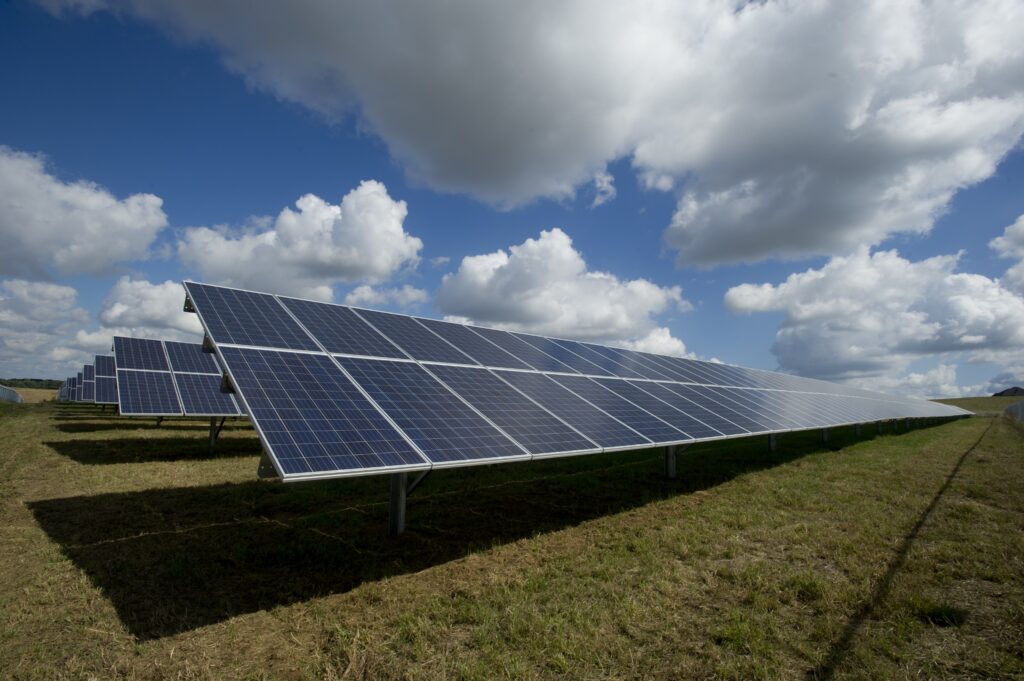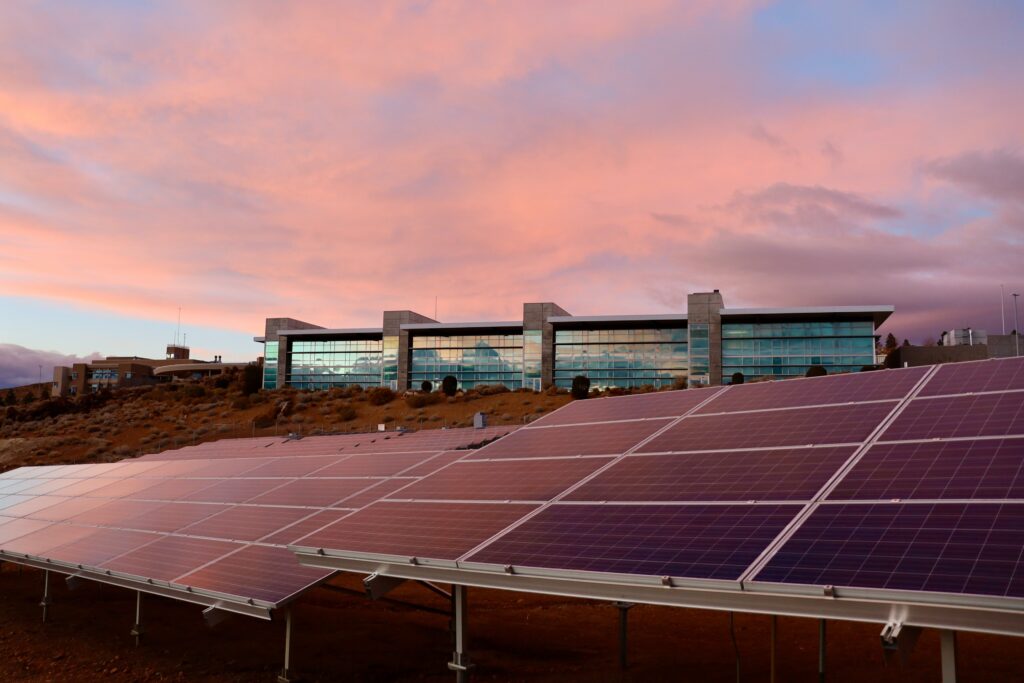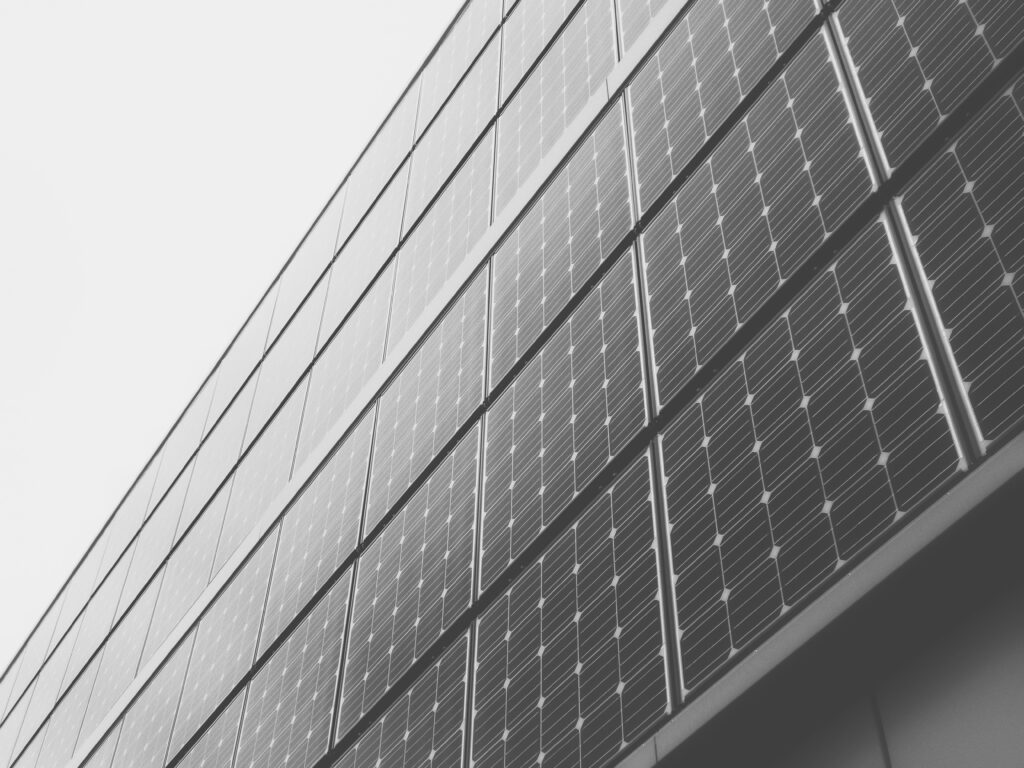If you’re considering harnessing the power of the sun to run your 1.5 HP air conditioner, you might be wondering just how many solar panels you’ll need. The answer to this question might surprise you, as it depends on several factors such as the size and efficiency of the panels, the location and climate of your area, and the energy consumption of your air conditioner. In this article, we’ll explore the key considerations to help you determine the number of solar panels needed to keep your space cool and comfortable while reducing your carbon footprint. So, let’s dive in and uncover the solar panel solution for your air conditioning needs!

Understanding Solar Power and Air Conditioner Connections
What is solar power?
solar power refers to the energy derived from the sun’s rays, which is abundant and renewable. This energy can be harnessed through the use of solar panels, also known as photovoltaic (PV) panels, which convert sunlight into electricity. Solar power is a clean and sustainable alternative to traditional electricity sources, offering numerous environmental and financial benefits.
How do air conditioners function with solar power?
Air conditioners can be powered by solar energy through the integration of a solar power system. The Solar panels generate electricity, which is then used to power the air conditioner. By utilizing solar power, the dependence on conventional electricity and the associated carbon emissions can be significantly reduced.
Importance of properly sizing a solar power system for your air conditioner
Properly sizing a solar power system for your air conditioner is crucial to ensure optimal performance and energy efficiency. Insufficiently sized solar power systems may not generate enough electricity to meet the energy demands of the air conditioner, resulting in suboptimal cooling performance. On the other hand, an oversized solar power system can lead to unnecessary costs and wasted energy. It is essential to accurately calculate the energy requirements of your air conditioner and select a solar power system that aligns with those needs.
The Basics of A 1.5 HP Air Conditioner
What does HP mean in AC units?
HP stands for horsepower and is a unit of power commonly used to measure the capacity of air conditioning systems. In the context of air conditioners, HP represents the amount of heat that can be removed from a room in a given time. The higher the HP rating, the greater the cooling capacity of the air conditioner.
Energy consumption patterns of a 1.5 HP air conditioner
A 1.5 HP air conditioner typically consumes a certain amount of power to operate. However, the energy consumption patterns may vary depending on factors such as the ambient temperature, desired cooling level, insulation of the room, and efficiency of the air conditioner. Understanding the energy consumption patterns of your specific 1.5 HP air conditioner is essential for accurately assessing the solar power system requirements.
Power demands of your 1.5 HP air conditioner
The power demands of a 1.5 HP air conditioner can vary depending on its efficiency rating and the cooling load it needs to handle. Generally, a 1.5 HP air conditioner has a power demand ranging from 1000 to 1500 watts. It is important to consider this power demand when determining the capacity of the solar power system needed to support the air conditioner.
Solar Panel Capacity and Efficiency
How is solar panel capacity measured?
Solar panel capacity is measured in watts-peak (Wp) or kilowatts-peak (kWp). It indicates the maximum power output that the solar panel can generate under ideal conditions, typically at 25 degrees Celsius and optimal sunlight. The capacity of a solar panel is an important factor when sizing a solar power system for an air conditioner, as it determines how much electricity can be produced.
Efficiency factors affecting solar energy conversion
Several factors impact the efficiency of solar energy conversion in PV panels. These include the quality of the solar cells, the angle and orientation of the panels towards the sun, shading issues, temperature variations, and dust accumulation. It is crucial to consider these efficiency factors to maximize the energy production of your solar panels and ensure they are capable of meeting the energy demands of your air conditioner.
Standard efficiency rates of typical solar panels
The efficiency rates of solar panels can vary depending on the technology used and the manufacturer. Generally, most commercially available solar panels have an efficiency rate ranging from 15% to 20%. However, some advanced panels can achieve efficiency rates of over 20%. Understanding the efficiency rates of the solar panels you select is essential to accurately calculate the number of panels needed for your air conditioner.
Calculating Energy Requirements of A 1.5 HP Air Conditioner
Watts, Kilowatts and Kilowatt-hours explained
Watts (W), kilowatts (kW), and kilowatt-hours (kWh) are units of power and energy commonly used to quantify electricity consumption. Watts represent the instantaneous power consumption, while kilowatts are a larger unit equivalent to 1000 watts. Kilowatt-hours measure the total energy consumed over an hour. To calculate the energy consumption of your 1.5 HP air conditioner, you need to consider the power rating in watts and the duration of operation.
Calculating the energy consumption of your 1.5 HP AC
To calculate the energy consumption of your 1.5 HP air conditioner, multiply the power rating (in kilowatts) by the number of hours the air conditioner operates. For example, if the power rating is 1.2 kW and the air conditioner operates for 8 hours, the energy consumption would be 9.6 kWh. This calculation helps determine the daily energy consumption, which is essential for sizing the solar power system.
Factors affecting the energy requirements of air conditioners
Several factors can impact the energy requirements of air conditioners, including the desired temperature, insulation levels, outdoor temperature, usage patterns, and maintenance of the unit. By considering these factors, you can determine the most accurate estimate of energy consumption, facilitating the proper sizing of the solar power system required to meet the air conditioner’s needs.

Determining Solar Panel Needs Based on Energy Consumption
The ratio between AC energy consumption and solar panel production
To determine the number of solar panels needed based on the energy consumption of your air conditioner, you need to consider the ratio between AC energy consumption and solar panel production. If your air conditioner consumes 10 kWh per day and the solar panels produce 5 kWh under optimal conditions, you would need at least 2 times the solar panel capacity to meet the AC’s energy needs.
How to estimate the number of solar panels needed based on AC energy needs
To estimate the number of solar panels needed, divide the daily energy consumption of your air conditioner (in kilowatt-hours) by the average daily energy production of a single solar panel (in kilowatt-hours). This calculation provides an approximation of the number of solar panels required to meet the energy needs of your air conditioner. However, it is important to consider factors such as panel efficiency, weather conditions, and installation losses for a more accurate estimation.
Effects of variables like sunlight intensity and duration on solar energy production
Variables such as sunlight intensity and duration can significantly impact solar energy production. Higher sunlight intensity and longer durations of direct sunlight can increase the electricity generation of solar panels. However, factors like weather conditions, seasonal variations, shading, and panel orientation can influence the actual solar energy production. It is crucial to consider these variables when determining the number of solar panels needed to ensure reliable energy supply for your air conditioner.
Extra Considerations for Solar Panel Sizing
Back-up battery storage for nighttime or cloudy days usage
When sizing a solar power system for your air conditioner, it is important to consider the need for back-up battery storage. This enables the AC to operate during nighttime or cloudy days when solar energy production is minimal. The capacity of the battery storage should be sufficient to store the excess solar energy generated during peak sunlight hours to ensure uninterrupted cooling.
Accounting for energy loss during DC to AC power conversion
DC to AC power conversion is necessary to convert the solar energy generated by the panels into a usable form for the air conditioner, as AC units operate on alternating current (AC). However, this conversion process incurs energy losses. It is essential to consider these losses when sizing the solar power system to ensure the overall system can meet the energy demands of the air conditioner effectively.
Future proofing and considering potential increase in energy usage
When sizing a solar power system for your air conditioner, it is prudent to consider future energy needs. Anticipating potential increases in energy usage due to expansions, additional appliances, or lifestyle changes can help you select a solar power system that can accommodate these future requirements. It is advisable to consult with professionals to ensure the solar power system is adequately sized for long-term sustainability.

Installation Configuration of Solar Panels
How space and orientation can affect solar energy production
The space available for the installation of solar panels and their orientation significantly impact solar energy production. Ideally, solar panels should be installed in an unshaded area with optimal sunlight exposure. The angle and tilt of the panels should also be adjusted to maximize energy production based on the geographical location. Proper consideration of space and orientation ensures the panels receive optimal sunlight and generate the maximum amount of electricity for your air conditioner.
Options for roof-mounted, ground-mounted, and tracking solar panels
Solar panels can be installed on rooftops, on the ground, or using tracking systems that adjust the panel orientation to optimize sunlight exposure throughout the day. Roof-mounted panels are a popular choice as they utilize existing space, are less susceptible to shading, and often have easy access to electrical connections. Ground-mounted panels allow for flexibility in positioning and maintenance, while tracking systems can constantly adjust panel angles for optimal energy production. The choice of installation depends on space availability, sunlight exposure, and personal preferences.
Optimizing solar panel configuration for maximum efficiency
To optimize the efficiency of your solar panel configuration, it is important to consider various factors. These include the number and arrangement of panels, tilt angle, and inter-panel spacing. By understanding the specific requirements of your air conditioner and the available space, you can design an efficient solar panel configuration that maximizes energy production and minimizes shading issues, ensuring the most effective utilization of solar power.
Cost Analysis and Financial Factors
Investment costs for solar panel systems
Installing a solar panel system involves both initial investment costs and long-term savings. The investment costs typically include the purchase and installation of solar panels, inverters, batteries (if applicable), wiring, and labor. The total cost varies based on factors like the size of the system, panel efficiency, installation complexity, and regional market conditions. However, it is important to consider the potential long-term savings on electricity bills and the availability of incentives and rebates when assessing the overall financial viability of solar panel systems.
Running costs of solar-power AC vs conventional AC
Solar-powered air conditioners have lower operating costs compared to conventional air conditioners. By utilizing solar energy, you can significantly reduce or eliminate the need to purchase electricity from the grid, resulting in lower energy bills. Additionally, solar-powered ACs have minimal maintenance costs, as they rely on clean and renewable energy. Although the upfront investment in solar panel systems may be higher, the long-term running costs can make solar-powered air conditioners a cost-effective and sustainable choice.
Government incentives and rebates for solar installations
Governments around the world offer various incentives and rebates to promote the adoption of solar energy. These can include tax credits, grants, subsidies, and feed-in tariffs, among others. These financial incentives aim to reduce the initial investment costs and enhance the financial viability of solar panel installations. It is important to research and understand the available incentives in your region to take advantage of these offerings and make solar power for your air conditioner more affordable.
Environmental Impact and Sustainability
Carbon footprint of solar power versus traditional electricity
Solar power has a significantly lower carbon footprint compared to traditional electricity generation methods. Traditional electricity sources, such as coal-fired power plants, release large amounts of greenhouse gases, contributing to climate change and air pollution. Solar power, being a clean and renewable energy source, produces zero greenhouse gas emissions during operation, making it an environmentally friendly choice. By opting for solar-powered air conditioners, you can contribute to reducing carbon emissions and mitigating the environmental impact of electricity consumption.
Sustainability benefits of using solar energy
Using solar energy for air conditioning offers several sustainability benefits. Solar power is a renewable energy source, meaning it is not depleted upon usage. Unlike fossil fuel-based electricity, which relies on limited resources, solar energy can be harnessed indefinitely as long as the sun continues to shine. By harnessing solar power, we reduce our reliance on non-renewable resources, minimize pollution, and contribute towards a more sustainable future.
Lifespan and recyclability of solar panels
Solar panels have a long lifespan, typically ranging from 25 to 30 years. With proper maintenance and care, they can even exceed this timeframe. At the end of their lifespan, solar panels can be recycled to recover valuable materials and minimize waste. The recycling process involves separating the components of the panel, such as glass, aluminum, and silicon, for reuse in the production of new solar panels or other products. Recycling solar panels not only reduces environmental impact but also conserves valuable resources.
Final Thoughts: Is Solar Power for a 1.5 HP Air Conditioner Worth It?
Assessing the economic feasibility of solar-powered air conditioners
The economic feasibility of installing a solar power system for a 1.5 HP air conditioner depends on various factors. These include the initial investment costs, solar panel efficiency and capacity, energy consumption patterns, regional sunlight conditions, electricity rates, and available government incentives. Conducting a thorough cost-benefit analysis, considering both the upfront costs and long-term savings, can help determine the economic viability of solar-powered air conditioners for your specific situation.
Consideration of local weather and sunlight conditions
Weather and sunlight conditions play a crucial role in determining the energy production potential of solar panels. If you live in an area with abundant sunlight and minimal shading, solar power can be a viable and efficient option for powering your air conditioner. However, regions with low sunlight intensity, frequent cloud cover, or significant shading issues may not be as suitable for solar power generation. It is important to consider local weather and sunlight conditions when assessing the feasibility of solar power for your air conditioner.
The role of solar power in a sustainable future
Solar power is set to play a significant role in the transition towards a sustainable future. As we strive to reduce carbon emissions and combat climate change, renewable energy sources like solar power offer a viable solution. By integrating solar power systems into our air conditioners and other appliances, we can reduce our dependence on fossil fuels, minimize pollution, and contribute towards a greener and more sustainable planet. Embracing solar power is not only beneficial for individual energy consumption but also for the collective well-being of our environment and future generations to come.




